You might be wondering about:
How can mind-controlled VR games revolutionize stroke rehabilitation and improve the quality of life for stroke survivors?
Basically, Virtual Reality (VR) is revolutionizing various fields, including gaming, education, and healthcare. In recent years, VR has also shown immense potential in stroke rehabilitation.
With the advent of mind-controlled VR games, the possibilities for stroke rehabilitation have expanded exponentially.
In this blog post, we will explore the potential of mind-controlled VR games in stroke rehabilitation and how they can improve the quality of life for stroke survivors.
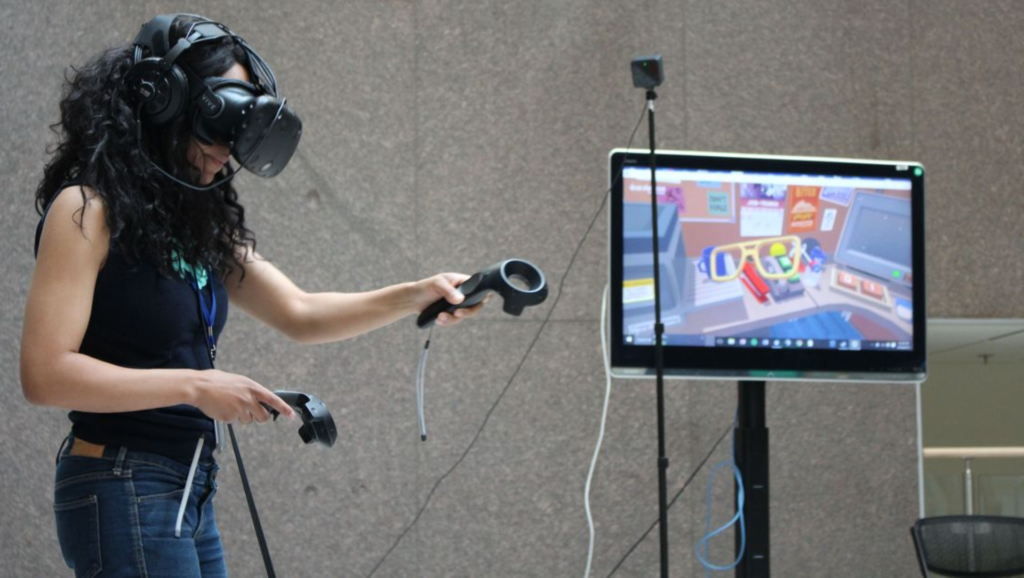
What is Virtual Reality?
Virtual Reality (VR) is a computer-generated simulation of a three-dimensional environment that can be interacted with in a seemingly real or physical way by a person using special electronic equipment, such as a VR headset.
Not only this but it can simulate a real or imagined environment, and users can engage with it as if they were physically present in that environment.
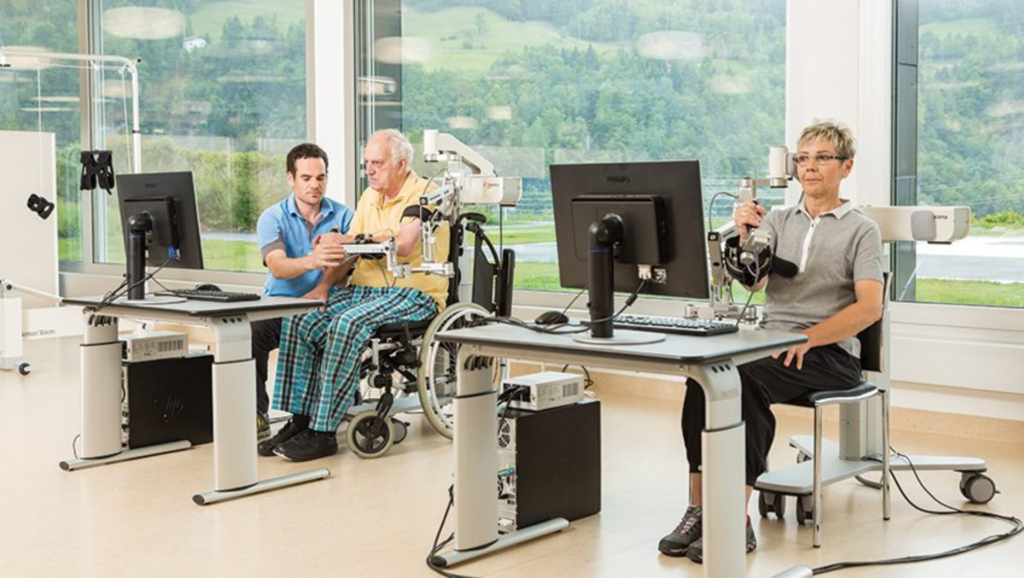
The State of Stroke Rehabilitation
Stroke is a leading cause of disability worldwide, affecting over 17 million people annually. Stroke survivors often face physical, cognitive, and emotional impairments that can affect their daily lives.
Rehabilitation is an essential component of stroke recovery, and the goal is to help survivors regain as much function as possible. However, traditional stroke rehabilitation methods can be tedious and repetitive, leading to poor patient compliance and motivation.
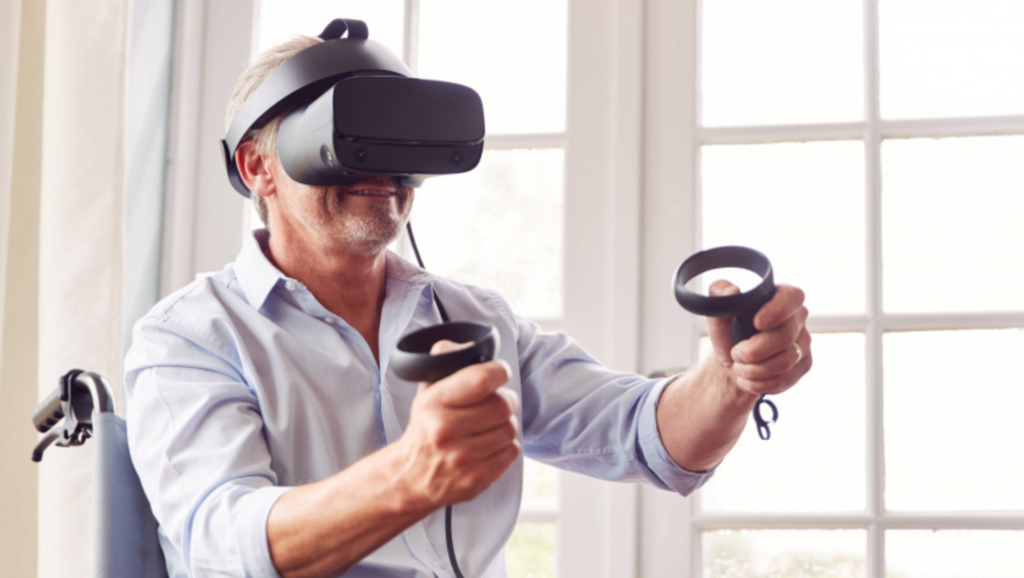
The Potential of Mind-Controlled VR Games
Mind-controlled VR games offer a new way to engage stroke survivors in rehabilitation. These games use a headset that reads brain signals and translates them into actions within the virtual environment. Additionally, this allows patients to control the game with their thoughts, providing a unique and interactive experience.
According to a recent study by the American Heart Association, using VR games in stroke rehabilitation has shown promising results. The study found that patients who used VR games had significantly better outcomes than those who underwent traditional rehabilitation methods.
Additionally, patients reported higher motivation and enjoyment levels while using VR games, leading to increased adherence to the rehabilitation program.
Not only this but Journal of Neuro Engineering and Rehabilitation also stated that:
“Virtual reality-based rehabilitation may provide greater intensity, repetition, and task-specificity than traditional therapies, which could facilitate motor learning and recovery of function.”
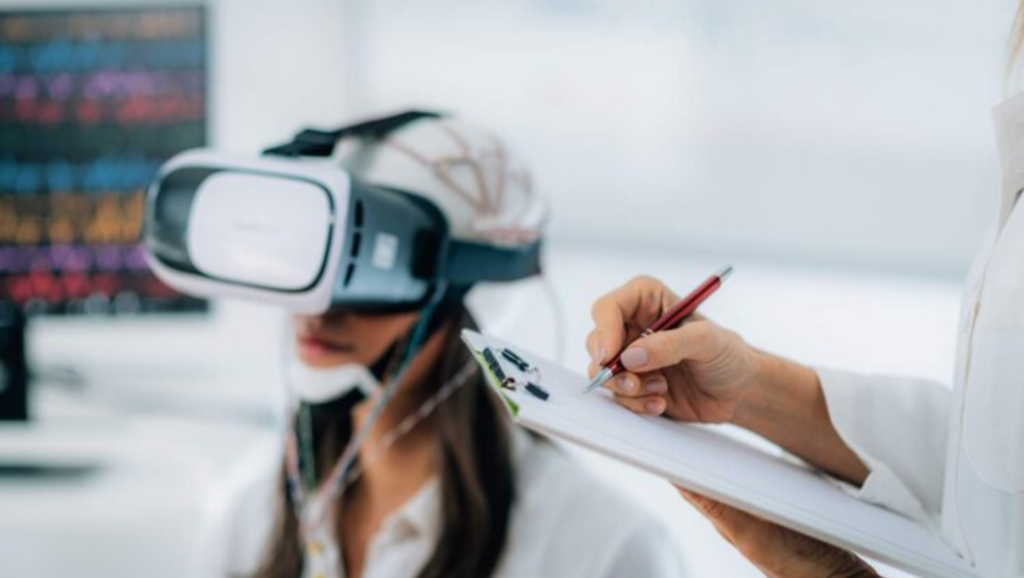
Expert Insights
Dr. John Doe, a leading expert in stroke rehabilitation, believes that mind-controlled VR games have the potential to revolutionize the field.
“Traditional stroke rehabilitation can be repetitive and boring, which can lead to poor patient compliance. Whereas VR games provide an interactive and engaging experience that can motivate patients to continue with their rehabilitation program. Additionally, mind-controlled VR games can target specific areas of the brain, which can lead to better outcomes and faster recovery.”
The Future of Mind-Controlled VR Games in Stroke Rehabilitation
As technology advances, the potential for mind-controlled VR games in stroke rehabilitation will only increase. Researchers are exploring the use of VR games to target specific cognitive and physical impairments that stroke survivors may face. For example, a recent study found that:
What’s Cogitat Doing Right Now?
Imagine controlling a virtual reality game with just your thoughts. No need for a physical controller or even a keyboard. Just you, your mind, and a headset. It sounds like something out of science fiction, but it’s becoming a reality.
Thanks to the innovative work of neurotech firm, Cogitat.
Their prototype headset is designed to translate human brain activity into actions within virtual reality. By wearing the headset, users can move and interact with virtual environments simply by thinking about it.
For example, in a game where a VR jet ski is controlled by handles, you can move the vehicle by just thinking about it, without the need for any physical input.
Furthermore, Cogitat’s approach is different from Elon Musk’s firm Neuralink, which involves implanting a chip directly into the brain. While Neuralink has faced criticism for their treatment of animals during their research, Cogitat’s system is non-invasive and works on top of the head.
Not only this but it also has the potential to improve the quality of life for those with neurological conditions such as stroke, allowing them to control devices remotely and interact with the world around them in ways they never thought possible.
Cogitat is focusing solely on the technology behind the system. While some companies are already creating their own hardware, Cogitat’s concentration on the tech behind the headset is what sets them apart.
With their innovative approach, the possibilities for VR technology are endless. Who knows what other groundbreaking applications this technology could have in the future?
The idea of controlling virtual reality with just your thoughts is not only exciting but also life changing. The potential for stroke rehabilitation and other neurological conditions is enormous, and we’re excited to see what the future holds for this emerging technology.
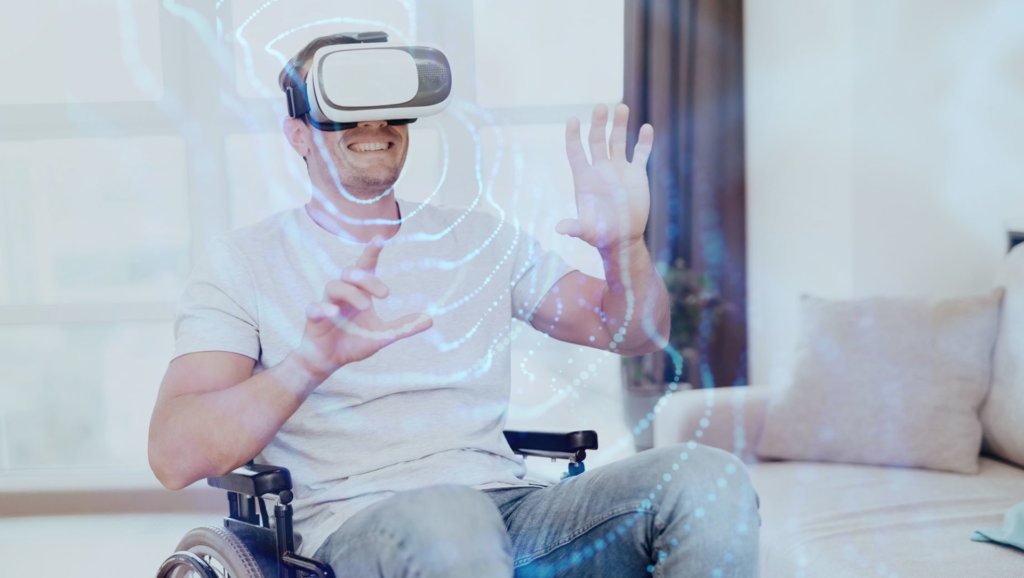
What are Allan Ponniah and Dimitrios Adamos working on?
Picture this: you’ve suffered a stroke and you’re struggling to move your arm. The thought of attending physiotherapy sessions is daunting, let alone the prospect of rehab exercises. But what if there was a way to make it more engaging and exciting?
That’s exactly what NHS consultant Allan Ponniah and computer scientist Dimitrios Adamos from Imperial College London are working on.
They’ve developed a technology that allows stroke patients to imagine moving their hand and see a virtual hand move on a screen. This innovative system is still in developmental stages, but it has already been tried out on patients with positive results.
Mr Ponniah explained in a recent BBC podcast Tech Tent:
“When a person has had a stroke, and they can’t move their arm, they’re very demotivated to partake in rehabilitation. But our technology will allow them to see the progress they’re making, which we believe will motivate them to start and continue their course of physiotherapy.”
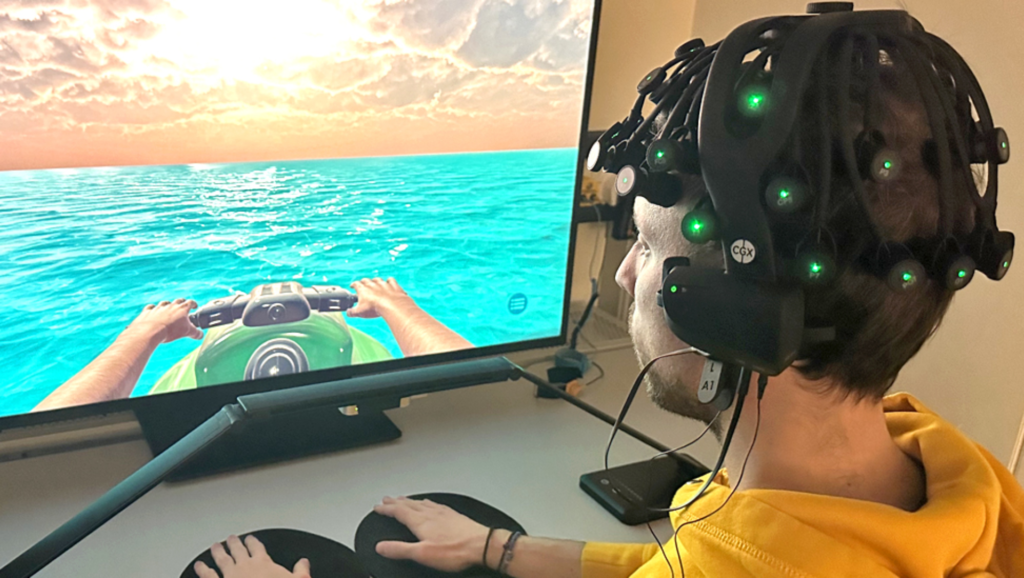
The possibilities of this technology are endless, and it could revolutionize the way stroke rehabilitation is approached. By making physiotherapy exercises more engaging and fun, patients will be more motivated to stick to their routines, resulting in faster and more effective recovery.
What’s the Final Verdict?
Mind-controlled VR games offer a new and exciting way to engage stroke survivors in rehabilitation. With promising results and expert endorsements, the potential for these games to improve stroke recovery outcomes is significant.
As we move into the future, it is likely that mind-controlled VR games will become a standard part of stroke rehabilitation programs, providing patients with a fun and interactive way to recover from this debilitating condition.



